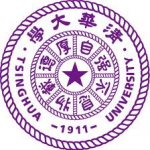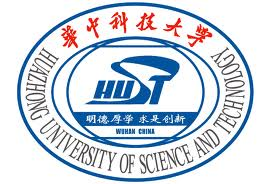China’s biggest export in June, at least measured by FLOP/s, could likely be the two teams they’re sending to the second annual Student Cluster Challenge at the International Supercomputing Conference (ISC). This is the second major cluster competition of 2013, coming hard on the heels of the recently completed Asia Student Supercomputer Challenge. These global competitions pit teams of university students against each other in three-day test to see which team can design, tune, and run the fastest cluster possible while staying under the 13 amp (~3,000 watt) power cap.
(If you’re a fan of primers, here’s one about student cluster competitions, and here’s the 2013 competition schedule.)
The two top Chinese teams coming out of the Asia Student Supercomputer Challenge (ASSC) earned the right to compete in Leipzig in mid-June. Both teams are sponsored by Inspur, the giant technology and technical services company based in China. Inspur was also a major sponsor of the ASSC. So let’s take a closer look at these competitors…
Tsinghua University (Team Tsinghua) hails from Beijing and is considered one of the top three universities in all of China. It has a pretty solid standing when compared to the rest of the world as well: QS World University Rankings rates TH as the 48th best school overall and gives them a rating of 77.51 (on a 100-point scale) on Engineering & Technology. The school began competing in student cluster competitions in 2012 and, to date, they’ve had three bouts and have put together an amazing track record:
- March 2012 China Competition: Won Overall Best Award
- June 2012 ISC Competition: Won Overall Best Award
- April 2013 Asia Student Supercomputer Challenge: Won Overall Best & LINPACK Awards
Team Tsinghua has come out of nowhere to become one of the hottest teams in student clustering. They’ve picked up a lot of experience over a short period of time and have set the student cluster world abuzz with their record-shattering 7.579 Tflop/s LINPACK score at ASSC last month. This result more than doubled the previous record of 3.014 Tflop/s posted by China’s NUDT at SC’12 last November.
Can Team Tsinghua stretch their winning streak to an unprecedented four student cluster competitions? Will they once again drink deeply from the golden chalice of cluster competition victory? They’ll be competing against a larger and more experienced international field at ISC’13 next month, which could stand in the way of a four-peat. But, for right now at least, Team Tsinghua has to be regarded as the early favorite to take all the marbles. (Again, I need to note that this is no actual Chalice of Victory and no marbles to take in this competition.)
Huazhong University of Science & Technology (Team HUST) travels to Leipzig from Wuhan, China (located in the central eastern part of the country). We don’t know a lot about this school, but we do know that Huazhong is a national key university in China, which means they’re directly connected to the Ministry of Education. It’s also a large school, with more than 50,000 undergraduate and post-graduate students.
They’re not riding gaudy world ranking stats like some of the other schools in the ISC’13 competition. QS University Rankings pegs the school as the 450th-500th best in the world, and their separate Engineering & Technology score is only 14.65 on a 100-point scale. Ouch. This will be only the second time Team HUST has competed in a cluster competition, and it’s their first international trip (as far as we know).
But it’s important to keep in mind that Team HUST did claw their way to a second-place finish at the ASSC event. They also turned in the top BDSE score (optimizing the options pricing routine to run on Intel’s Phi accelerator). In doing this, they beat out eight other teams, including the highly experienced Team Taiwan (NTHU), the past two-time winner of the US-based SC competitions. They also topped Team NUDT, an experienced team of GPU/GPU jockeys from China’s National University of Defense Technology. Both NTHU and NUDT are formidable opponents that were considered early favorites to take major awards at ASSC.
It will be interesting to see how the Chinese teams perform at ISC’13. Last year in Hamburg, they snapped up the Overall Best and LINPACK, achieving a clean sweep over their European and American competitors. This year, they’ll be facing a larger and more experienced field. Will we see another ‘Red Wave’ in Leipzig this June?
Posted In: Latest News, ISC 2013 Leipzig
Tagged: supercomputing, HPC, Tsinghua University, ASC 2013, ISC 2013, Huazhong University of Science & Technology, Student Cluster Challenge, HUST, Meet the teams


